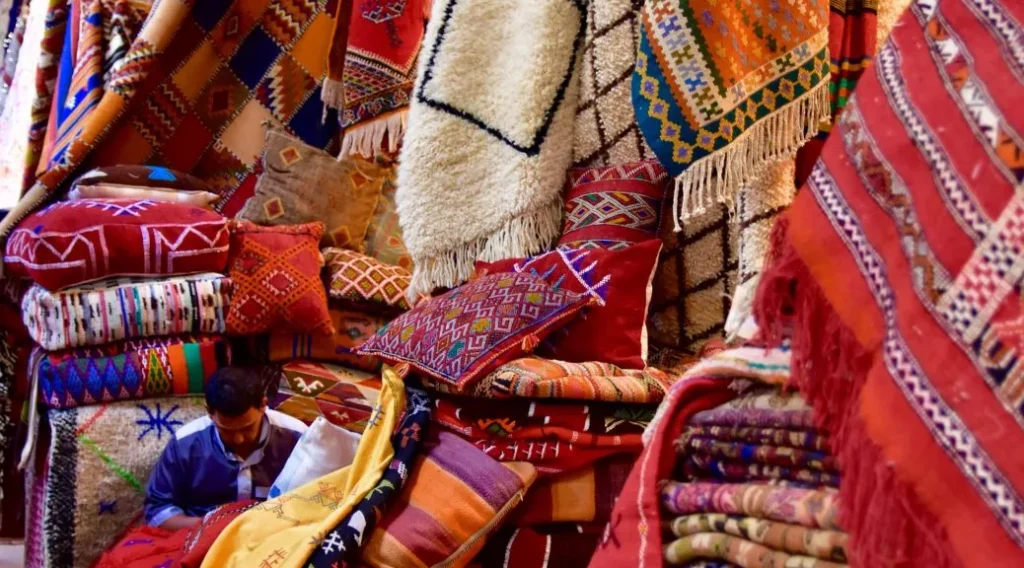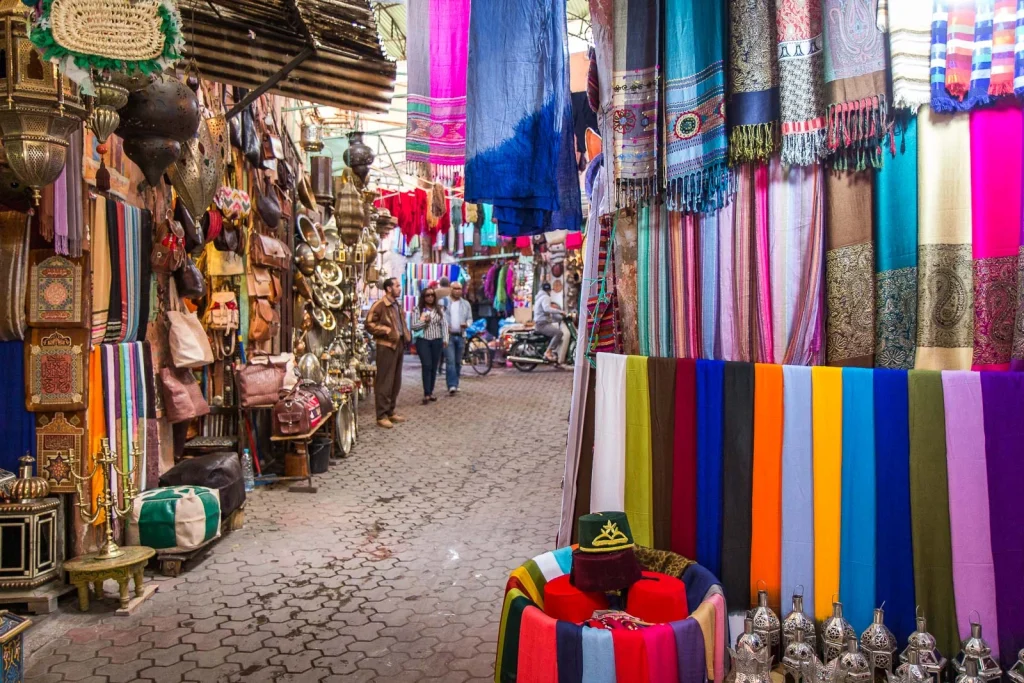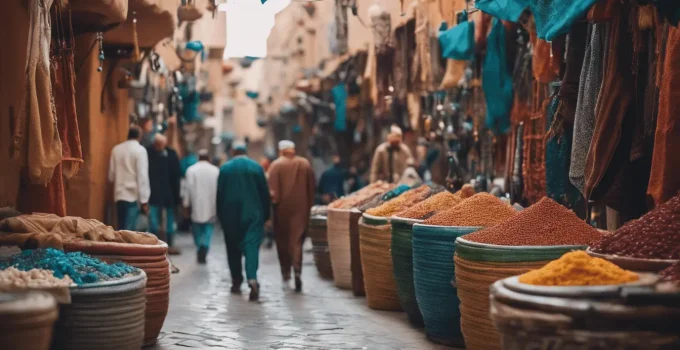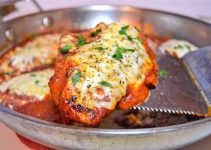Page Contents
ToggleThe Moroccan souks, the pulsating heart of the country’s unique cultural fusion, represent a sensory overload like no other. Far from industrial markets, those bazaars are not only a place of commerce, but also an indelible part of the Moroccan lifestyle – a window into the daily life and cultural mosaic of the North African country. From the intricate mazes of Marrakech to the narrow meandering alleys of Fez, the souks narrate a tale of craft, fellowship, and resilience. This article guides you into the vibrant world of Moroccan souks, unveiling their contextual history, cultural significance, and unforgettable experiences.
The Essence of Moroccan Souks
Souks in Morocco are more than just a space where people buy things; they are the heart of the cities. Traditionally, souks were subdivided by goods: some goods – be it spices, textiles, jewelry, or leather – had their street or section in the market. It is still largely the same today and is what makes souks truly great.
Historical Significance
The origin of Moroccan souks dates back to the medieval period when Morocco served as a principal terminus of the trans-Saharan trade routes. African, European, and Middle Eastern merchants used to gather to exchange goods and views in local markets. Eventually, the souks became more than just commercial centers. They played a vital role in the cultural and social life of Moroccan cities.
Cultural Hub
To this day, the souks are an integral element of the modern Moroccan lifestyle. As a tourist, here you will meet modernity in the company of tradition, and witness the everyday interactions that shape the Moroccan Damour. In addition, the souks are still an essential sector of the Moroccan economics, enabling artisans who keep on producing traditional crafts for generations.

Navigating the Labyrinth: Key Moroccan Souks to Explore
Each city in Morocco offers a unique souk experience. Here are some of the most iconic souks that you should consider exploring:
- Souk Semmarine (Marrakech): This is the largest and most famous souk in Marrakech, offering a variety of goods from traditional Moroccan carpets and spices to pottery and lanterns. The vibrant atmosphere here is intoxicating, with snake charmers and storytellers adding to the market’s charm.
- Souk el Attarine (Fez): Known for its spices and perfumes, this souk is located near the Al-Qarawiyyin Mosque and University. It’s a fantastic place to find traditional Moroccan fragrances and herbal remedies.
- Souk Al-Had (Agadir): This is one of the largest markets in Morocco and a bit more modern compared to those in Marrakech or Fez. You can find everything from fresh produce to electronics here.
- The Blue Souk (Chefchaouen): Nestled in the blue city, this souk is smaller but offers a distinct range of handicrafts set against the stunning backdrop of blue buildings.
Tips for Souk Shopping
Shopping in a Moroccan souk can be an experience in and of itself. Some tips to get the most out of experience include:
It is your job to offer: Negotiating or haggling for a price is a staple of the Moroccan market. Most vendors will expect you to offer half of what they are asking and negotiate from there;
Prioritize: Many items available for purchase in a souk and it is easy to get overwhelmed.
Decide beforehand what you plan on buying;
Remember who you are: you are a guest to the country. Always be polite and dress tightly;
Explore wide: Try to figure out what’s off the main strip. Its often where I discover the items and values;
Get to know the language: Learning some basic Arabic or French phrases can go a long way in establishing a good relationship with the seller.
Culinary Delights in the Souks
On the other hand, a visit to the Souks cannot be done without trying the local cuisine. There are many street food stalls in and around the Souks selling kebabs, couscous, tajine and the popular Moroccan mint tea. Of particular importance and laudable mention is the pastilla, a delightfully sweet and savory pie that is itself a showcase for how artistic Moroccans are when it comes to cuisine.
Experiencing Local Art and Handicrafts
The Moroccan souks are not only about buying but also about appreciating the craftsmanship that is deeply embedded in Moroccan culture. Artisans in these markets demonstrate skills that have been refined over centuries, including:
- Leatherwork: Morocco is renowned for its leather goods, crafted in cities like Fez and Marrakech. You can watch artisans dyeing leather in ancient tanneries and creating everything from bags to intricate pouffes.
- Metalwork: In the winding alleys of the souks, you’ll find craftsmen working on intricate brass lamps, silver teapots, and decorative ironwork, all displaying the precision and creativity of local metalworkers.
- Textiles: The souks burst with colors from stacks of carpets and textiles. The Berber carpets, known for their unique patterns and durability, are particularly sought after. Observing the weaving process and understanding the symbols woven into each rug can be a captivating experience.
- Ceramics and Pottery: Towns like Safi and Fez are famous for their pottery, characterized by intricate hand-painted designs. Visiting these sections of the souks allows you to see artisans painting ceramics by hand with remarkable precision on jp slot.
Sustainability and Ethical Shopping
As tourism continues to grow, sustainability in shopping becomes crucial. Here are some considerations for ethical purchasing in the souks:
- Support Local Artisans: Buying directly from the artisans ensures that your money goes to the craftspeople rather than middlemen. This not only supports the local economy but also helps preserve traditional crafts.
- Be Mindful of Bargains: While bargaining is part of the culture, it’s important to remember that a fair price allows artisans to sustain their livelihoods. Paying a fair price ensures the sustainability of their craft.
- Eco-friendly Products: Opt for products that are made using sustainable methods and materials. Many souks now offer eco-friendly alternatives that minimize environmental impact.

Cultural Etiquette and Interactions
Navigating the souks respectfully involves understanding and adhering to local customs:
- Dress Appropriately: Moroccan culture is conservative, so dressing modestly is respectful and appropriate. This is especially important in the souks, which are often near religious sites.
- Photography: Always ask for permission before taking photos of people or their stalls. Many vendors may be comfortable with you photographing their goods, but personal photos require consent.
- Language and Communication: While many vendors speak English, French, or Spanish, learning a few phrases in Arabic can enrich interactions and show respect for the local culture.
Culinary Tours in the Souks
For those lovers of good food, a culinary tour through the souks will be a feast for the senses. Popular features of these tours include:
A wide range of flavors: take a guided tasting tour through the stalls to sample different traditional Moroccan food, from tagines and harira soup to sweet pastries.
Cooking courses: attend a cooking class with local chefs who will teach you how prepare traditional dishes you purchased in the souk.
Spice guide: given a history of Moroccan spices, including each spice medicinal purposes and tips of how to cook, prepare, or drink them.
In summary, visiting the Moroccan souks is like entering a vibrant and chaotic tale of daily life, culture, and history that speaks to the essence of Morocco. The souks are more than markets; they are a portal into the character of Morocco and its people. Experience the handicrafts and special food, or simply come for the adventure, the souks will provide you with a learning journey full of revelations.
Seize the opportunity, communicate with the people, and let the Moroccan souks transform the image you have in your mind regarding this charming country. Moroccan souks open a window to Morocco’s identity. These marketplaces are full of daily activities and history; it is a cultural opportunity for travelers to gain an insight into the days and years of days gone by. You will have an opportunity to purchase a valuable souvenir, indulge in local flavor, and be immersed in the culture filled with vibrant life. Open your imagination, adapt to the disorganization of the area, and let the Moroccan souks be your guide.




